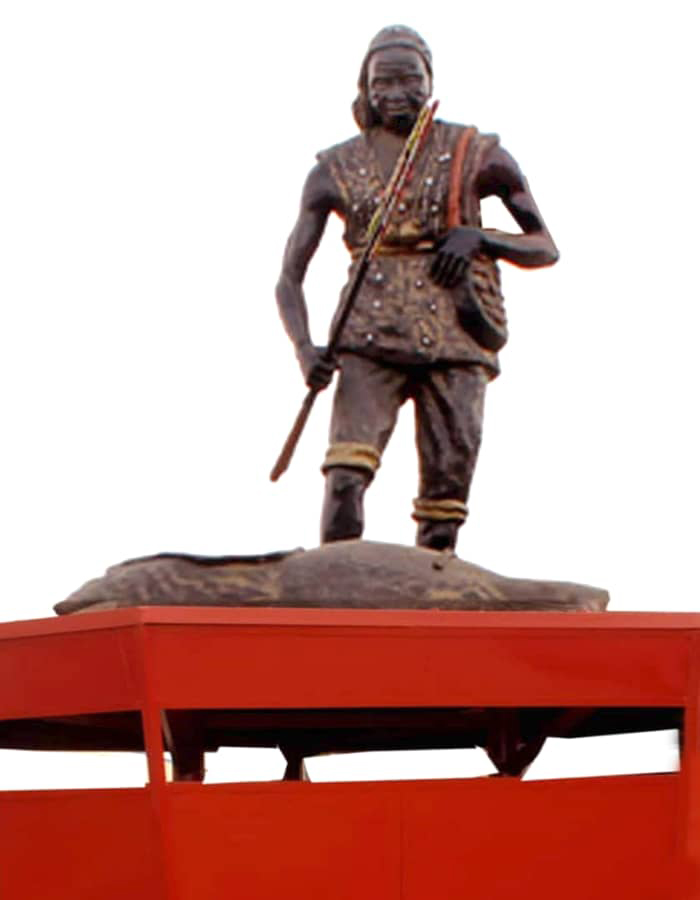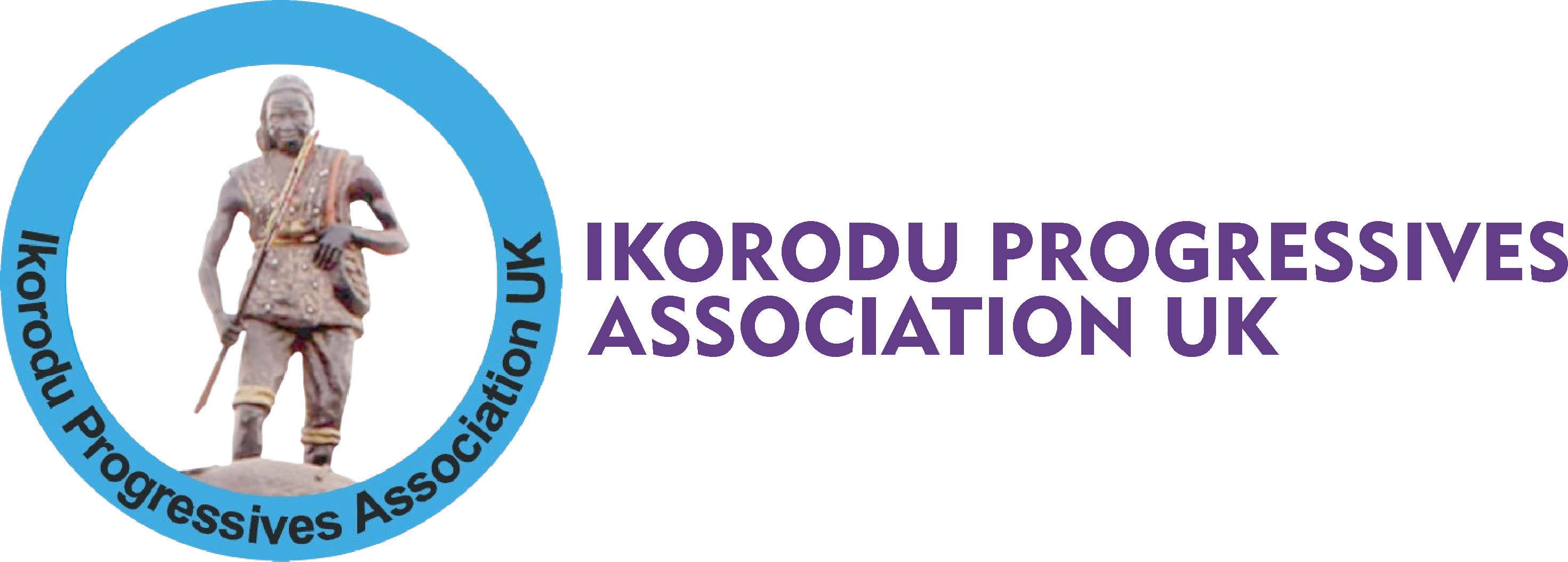ikorodu HISTORY

Ikorodu is a town in Lagos State, Nigeria. It is located in the north east of Lagos State along the Lagos Lagoon, it shares a boundary with Ogun State. As of the 2006 Census Ikorodu had an enumerated population of 535,619.
Ikorodu is situated at a distance of approximately 36 km north of Lagos. The town is bounded on the south by the Lagoon. In the north, Ikorodu shares common boundary with Ogun State. While in the east, it has common boundary with Agbowa-Ikosi, a town in the Epe division of Lagos State. In identifying some of which are today called ‘Itun’, a defined neighbourhood. Each Itun has an exact boundary. There are about sixteen or seventeen ‘Ituns’ in Ikorodu. Examples include “Itunmaja” which is inhabited by people mainly from Idowa, an important Ijebu town. Itunwaiye was occupied by people from ‘Iraiye’ (Iwaiye) in Ogun State, Remo and people of Itun-Ojoru, are from Igbehin, in Egba and so on.
There are three principals in Ikorodu (i) ISELE (ii) IJOMU (iii) AGA. The Ituns are minor areas while the Itas are squares.
Ikorodu in the last forty years or so, did not extend beyond the inner circular route of Ojubode, Etunrenren, Epadi, (Ayangbunren Road) Oju-ogbe, Ireshe, Eluku Street, Ojubode Street, Ojubode Orere Garage (Oriwu Hotel), Lagos Road. Ikorodu Township has now metamorphosed into a Metropolis with over a million people. Therefore, now extended to Aga Titun, Agbele, Erunwen, Solomade, Eyita, Agbala, Lowa, Gbasemo, Oke Ota-Ona and so on.
It has again extended to greater Ikorodu by the creation of Ikorodu West Development Council Area with Owutu as its headquarters which includes Ipakodo, Majidun, Itowolo, Oriokuta, Ajaguro, Ogolonto, Araromi-Solebo etc., and the Ikorodu North Local Council Development Area, that includes Isiwu, Odogunyan, Odonla, Odokekere, Okegbegun, Rofo, Lasunwon, Agbede, Losi Oba, Erikorodo, Araromi, Mojoda, Oke Ogbodo, Laiyeode/Akaun, Liadi, Maya, Parafa, Adamo, Aleke etc.
Surrounding major towns that make up Ikorodu division are Imota, Ijede and Igbogbo and all these major towns constitute their own Local Council Development Areas with their respective traditional rulers (Obas). Main occupations of Ikorodu people are trading (commerce), farming and Industry. Ikorodu Division has a large Industrial area containing many factories. In Ikorodu Township alone, half of the twenty-five (25) registered banks by the Central Bank of Nigeria, (CBN) have branch offices in Ikorodu.
Ikorodu’s relative closeness to sprawling Lagos conurbation makes it the fastest growing exurb near Lagos metropolis. There is influx of people from Ikorodu surrounding towns and villages and also from Lagos metropolis.
The history of Ikorodu is as rich as the enviable track record of its sons and daughters who have not only excelled in their chosen careers, but have also left their footprints on virtually all the strata of our national history for posterity to see. It is the history of a people whose ancestors, according to available history, descended from the Remo stock of Yoruba tribe who came down to settle on a plateau and named it Ikorodu, a shortened word from “Oko-Odu” which literally means Odu farm. Odu is an extinct vegetables specie used for cloth dying, grew luxuriantly on this plateau, hence the early settlers for want of a better name, found it convenient to name their new found settlement after this abundant vegetable.
With time, Okorodu changed to Ikorodu. The fact of the history seems to tilt in favour of Oga as the founder of Ikorodu. This by extension, confirms the Remo link in the origin of Ikorodu. The males among the early settlers in Ikorodu had facial tribal marks found amongst the Remo. The late Oba Adenaike Alagbe had such tribal marks.
The new settlement in the heart of a massive forest was first used by the sons of Akarigbo, Koyelu of Orile Offin Shagamu – Oga, Lasuwon, Rademo, Anoko, Osonusi (alias Ogbonyari) Igimisoje, Otutubiosun, Kilaro, Oladepo and Sekumade. The extended area now known as Ikorodu was used by these sons of Akarigbo of Ijebu-Remo for hunting and farming.
Soon after, some large contingent of Benin migrants came by land through Iki in Ogun state (where almost the whole land belongs to the Olisa family of Ikorodu) to the area now known as Ikorodu. This group of Benin people was led by a wealthy and powerful man called Eregbouwa (now called Rebugbawa in Ikorodu) from the ancient royal family of Oliha of Benin City. In Benin language, Ere means king and Uwa means peace and prosperity, hence Eregbuwa mean king of peace and prosperity. The Benin people settled down amicably with the children of Akarigbo and the farm started to grow into a large settlement. This was about 1630. The institution of Obaship was conceded to the line of Akarigbo while the institution of Olisaship was conceded to the Benin settlers. In effect, the Oba became the reigning monarch while the Olisa became the Kingmaker and the Prime Minister of the city-state.
This high position of the Olisa as the next in rank to the Oba in the city state was borne out in his attribute or cogno men in the Yoruba metaphor: Ajuwe – Akoye Orulu egbin o ru’lamuren a worun, meaning – a noble gentlemen who administers the town. This, of course, is done subject to the authority of the Oba and it presupposes that the cordiality between the Oba and the Olisa should be impenetrable. This was the tradition arrangement. The institutions and deities such as the Osugbo, the Awo Opa, the Inomu and the Eluku were designed for the good administration and peace of the town.
Prior to the advent of the Benin people, Oga was the head of the establishment. He and Lasunwon lived in a hamlet called Agbele at the presence site of NITEL. Agbele was also called Egure and so Oga became the Elegure of Egure. Lasunwon was Odofin of Shagamu.
But when the Binis came and Oga died. Lasunwon was installed the first Oloja of Ikorodu by Olisa Rebugbawe, the first Olisa of Ikorodu. Lasunwon and Eregbouwa (Rebugbawe) were therefore the first Oloja (Oba) and the first Olisa of Ikorodu respectively. There are two Ruling Houses for the Obaship namely Lasunwon and Rademo Ruling Houses.
Traditionally, Ikorodu is divided broadly into three for ease of representative democracy. These divisions are Ijomu, Aga, and Isele, which are represented, in Osugbo – the highest administrative organ in the town, headed by the Olisa as Chairman of Iwerefa (while Oluwo is administrative head). The smaller divisions called Ituns in the town are subsumed in the three major larger divisions.
With this arrangement, the emerging administrative structure of Ikorodu ensured that the Obaship and Olisaship belong to the two primordial families of Oba (Lasunwon and Rademo) and the Olisa respectively. They are traditional and hereditable titles.
As the settlement grew with influx of more migrants, city wall sprang up top providing buffer zones against intruders. The city wall which modernity had wiped out, ran through present day Ireshe Road to Ota-ona, right through Eluku Street /Alhaji Street, to Owolowo Street and back to Ireshe Road. The near spherical settlement within the wall was the totality of the old Ikorodu.
The early town grew around a nucleus of settlement referred to as Ituns, which covers a specific location with boundary.
There is Itun layeodo, people by migrant from Ode-Remo; Itagbodo was originally peopled by settlers from Oke-Gbodo, Itun Elepe is said to be the quarter started by people of Elepe stock in Shagamu; Itunwaiye was originally the quarter of people from Iwaiye in Ogun State; Itunsoku was originally peopled by migrants whose roots were traced to Isokun quarters in Shagamu; Itunojoru was the quarters peopled by migrant of Egba origin in Abeokuta.
The cosmopolitan outlook of the emerging settlement became the catalyst for development. Apart from farming, the early settlers were astute traders, who developed coastal market at Ebute. The flourishing trade in cloth dying, fishing, farm produce attracted traders from far-flung.
Obaship in Ikorodu
By agreement between the two early settlers groups, the institution of Olisa was conceded to the Benin side. LASUNWON and EREGBOUWA (Rebugbawa) became the first Oba or Oloja and the first Olisa of Ikorodu respectively, in around 1630. Since its founding, Ikorodu has been ruled by the Rademo and Lasunwon Royal Families. Following is the list of Obas of Ikorodu:
- Lasunwon (Oloja)
- Rademo (Oloja)
- Lugbekan (Oloja) (Lasunwon)
- Dotelu (Oloja) (Lasunwon)
- Kaalu (Oloja) (Lasunwon)
- Oguntade I (Oloja) (Rademo)
- Petu (Oloja) (Rademo)
- Kuyinu (Oloja) (Rademo)
- Ireshe (Oloja) (Lasunwon)
- Idowu Alagbo (Oloja) (Rademo)
- Odesanya (Oloja) (Lasunwon)
- Orelaja (Oloja) (Rademo)
- Ogunlaru (Oloja) (Lasunwon)
- Aina Odubote (Oloja) (Rademo)
- Araba Odunjumo (Oloja) (Lasunwon)
- Owujebe Ajayi (Oloja) (Lasunwon)
- Alagbe Adenaike (Oba), Adegorushen IV (Lasunwon)
- Ladega Samuel O. (Oba) (Lasunwon)
- Oyefusi Afolabi Salawu (Oba), Oguntade II (Rademo)
- Shotobi Adewale Kabir, (Oba), Adegorushe IV (Lasunwon)
